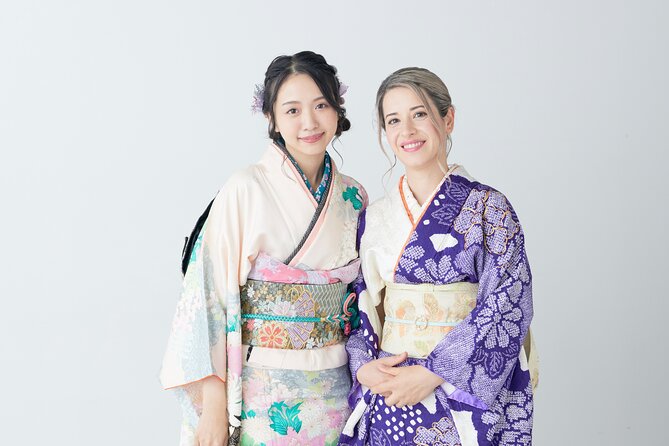In a world where culinary boundaries are constantly being pushed, the fusion of Vegetarian Gluten-Free/HALAL Ramen and Gyouza emerges as a beacon of innovation. Picture a symphony of flavors where traditional Japanese cuisine meets dietary inclusivity in a harmonious blend.
As the aroma of simmering broths and sizzling dumplings fills the air, one can’t help but wonder about the secrets behind crafting these tantalizing dishes. The journey into the realm of Vegetarian Gluten-Free/HALAL Ramen and Gyouza beckons with promises of culinary revelations that cater to the diverse palates of today’s foodies.
Quick Takeaways
- Nourishing vegetarian and gluten-free options with flavorful broth and wholesome ingredients
- Halal-friendly gyouza crafted with fresh ingredients and plant-based proteins
- Diverse gluten-free ramen noodles catering to various dietary needs and offering unique tastes
- Master cooking techniques for delicious ramen and gyouza, enhancing the dining experience
Benefits of Vegetarian Ramen
When exploring the benefits of vegetarian ramen, one can’t overlook its nourishing and flavorful broth that’s often packed with wholesome ingredients like vegetables, herbs, and spices. This vegetarian option not only caters to those with dietary restrictions but also offers various health benefits.
The broth, enriched with vitamins and minerals from vegetables, contributes to overall well-being. Plus, the sustainability impact of choosing vegetarian ramen is noteworthy. By opting for plant-based ingredients instead of animal products, individuals support a more environmentally friendly food choice.
This conscious decision helps reduce the carbon footprint associated with traditional meat-based broths, making vegetarian ramen a wholesome and eco-conscious option for those seeking a satisfying and nutritious meal.
Halal-Friendly Gyouza Options
For those seeking halal-friendly gyouza options, BentoYa Cooking, known for its Japanese Vegan/Vegetarian Cooking School, offers a delectable selection prepared with care and consideration for dietary preferences.
The halal friendly dumpling fillings are crafted with a blend of fresh vegetables, aromatic spices, and plant-based proteins, ensuring a flavorful experience that adheres to halal guidelines.
Complementing these fillings are vegetarian gyouza wrappers made from a combination of gluten-free flours, carefully selected to achieve the perfect texture and taste.
Each bite into these gyouza delights promises a harmonious fusion of savory fillings encased in a light and crispy wrapper.
BentoYa Cooking‘s dedication to providing halal-friendly options extends to every aspect of their culinary creations, promising a satisfying and inclusive dining experience.
Gluten-Free Ramen Noodle Varieties
Exploring the diverse world of gluten-free ramen noodle varieties reveals a spectrum of flavors and textures waiting to be savored by discerning palates.
When it comes to gluten-free noodle substitutes, the market offers exciting options that cater to various dietary needs. These substitutes not only meet gluten-free requirements but also bring unique tastes and textures to the table.
Plus, opting for gluten-free ramen noodles can provide health benefits such as aiding in digestion and reducing bloating. Embracing these alternatives opens up a world of culinary possibilities for those with gluten sensitivities or dietary preferences.
Next time you crave a comforting bowl of ramen, consider trying one of these gluten-free options for a delicious and wholesome meal.
Cooking Techniques for Ramen and Gyouza
Embracing the art of crafting flavorful ramen and gyouza requires mastering essential cooking techniques that elevate these beloved dishes to new heights of culinary delight.
When preparing vegan dumpling variations, it’s crucial to ensure the filling is well-seasoned and finely chopped for a harmonious blend of flavors. Experimenting with ingredients like tofu, mushrooms, and cabbage can create unique textures and tastes for the dumpling fillings.
For the ramen noodle alternatives, understanding the cooking times and methods for different types of noodles is key to achieving the perfect texture. Whether using rice noodles, soba, or zoodles, adjusting cooking times and techniques can make a significant difference in the final dish.
Perfecting these techniques will undoubtedly enhance the overall dining experience for any ramen and gyouza enthusiast.
Flavorful Vegetarian Broth Recipes
Crafting a rich and aromatic vegetarian broth forms the flavorful foundation essential for elevating the taste profile of your ramen and gyouza dishes.
- Utilize a combination of dried shiitake mushrooms and kombu seaweed for an umami-packed base.
- Add in charred onions and garlic to enhance depth and complexity.
- Incorporate soy sauce, miso paste, and mirin for a savory and slightly sweet undertone.
- Finish with a splash of sesame oil and a hint of ginger for a refreshing kick.
These broth recipes not only cater to vegetarian and Halal dietary restrictions but also provide a robust canvas for your favorite ramen toppings and perfectly paired Halal noodles.
Common questions
Can I Request Any Specific Dietary Accommodations or Substitutions for the Vegetarian Gluten-Free/Halal Ramen and Gyouza Cooking Class?
When inquiring about dietary accommodations or substitutions, one can request specific adjustments to the cooking class meal. These changes may involve altering ingredients or techniques to suit dietary restrictions while maintaining the flavors and authenticity of the dish.
Are There Any Age Restrictions for Participating in the Cooking Class?
Age restrictions vary by cooking class. Participants should inquire about any limitations beforehand. Dietary accommodations can usually be arranged, but it’s crucial to communicate needs in advance. The school aims to cater to diverse preferences.
Is There a Minimum Number of Participants Required for the Cooking Class to Proceed?
The class size usually requires a minimum of four participants to proceed, ensuring an interactive experience. However, they offer flexibility for solo participation if the minimum is not met. Logistics are well-organized for a seamless cooking adventure.
Are There Any Options for Purchasing Ingredients or Cooking Utensils Used in the Class?
For those eager to recreate the culinary magic at home, there are limited purchasing options post-class. Cooking utensils used during the experience can be obtained, allowing enthusiasts to continue their gastronomic adventures.
Can I Bring a Guest to Observe the Cooking Class Without Participating in the Cooking Activities?
Guests may observe the cooking class without participating in the activities. They can witness the cooking techniques and demonstrations. It’s a great way to experience the process without getting hands-on. Observing can provide valuable insights and enjoyment.
The Sum Up
Indulge in the harmonious fusion of flavors and traditions with Vegetarian Gluten-Free/HALAL Ramen and Gyouza. From the satisfying warmth of the broth to the delicate folds of the gyouza, every bite is a symphony of taste and texture.
With BentoYa Cooking as your guide, learn about the art of Japanese cuisine and savor a culinary experience like no other. Join us for a journey that tantalizes the senses and nourishes the soul.






